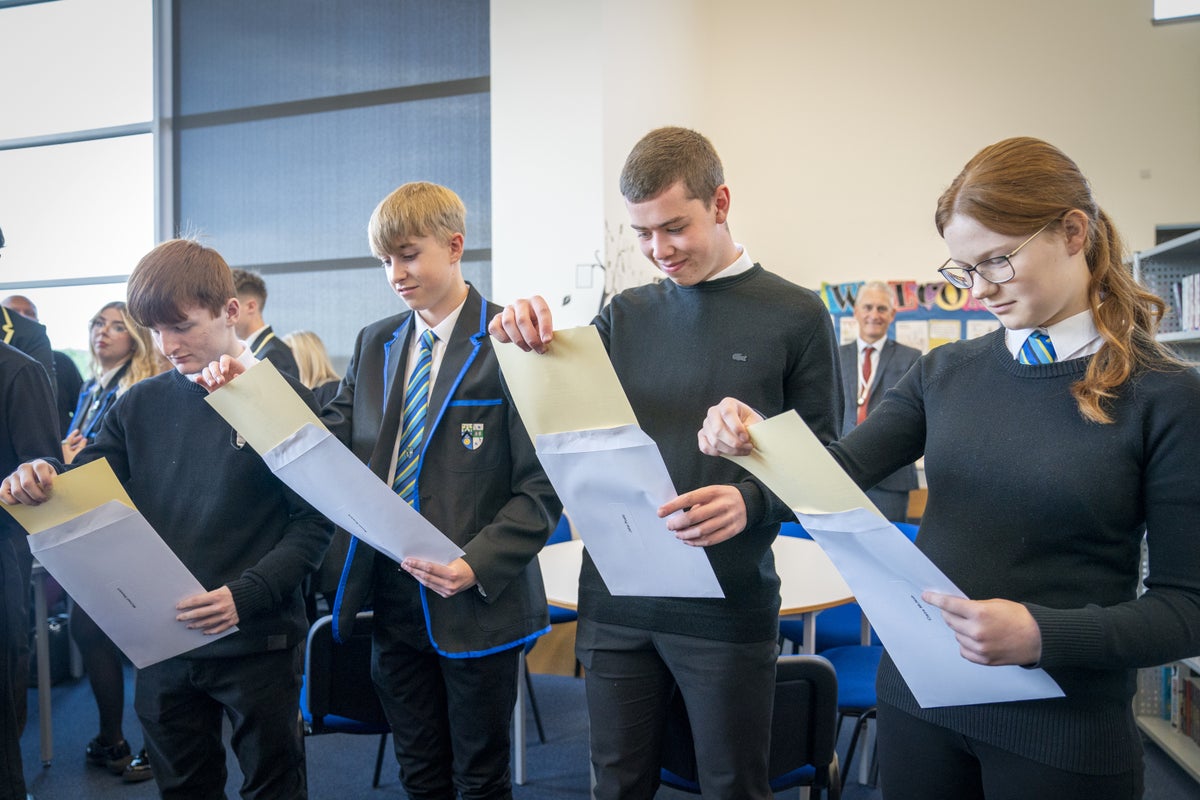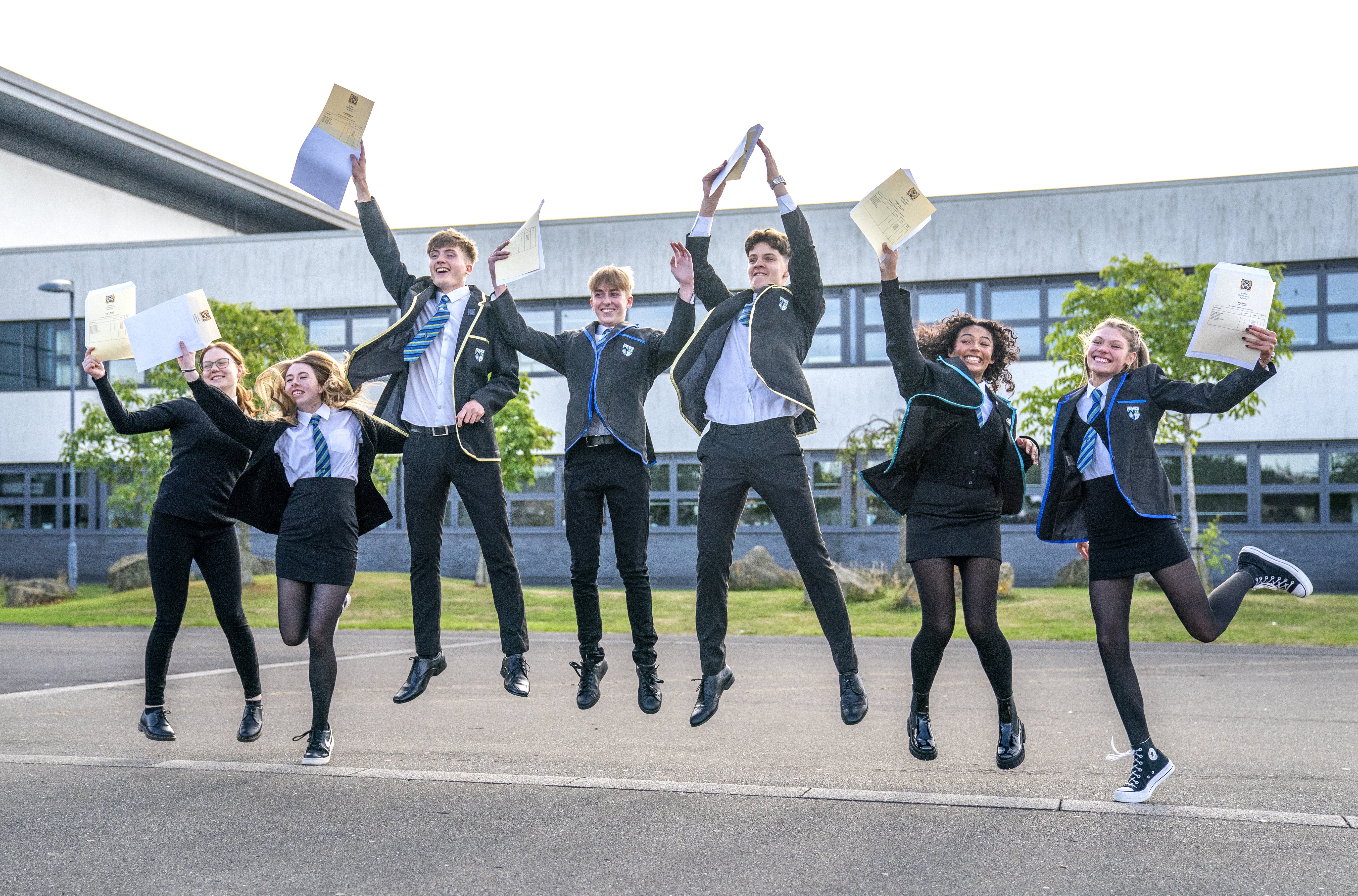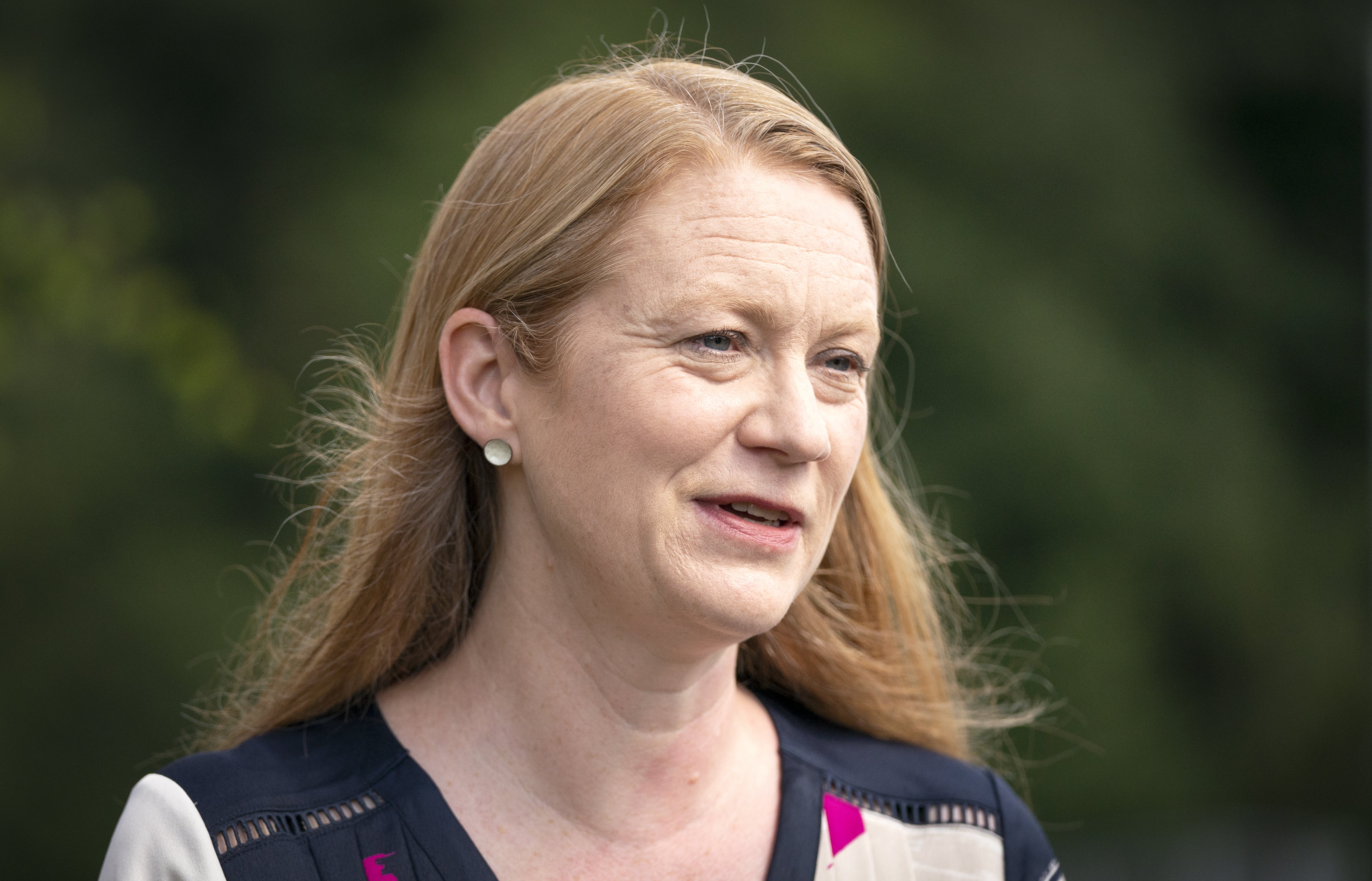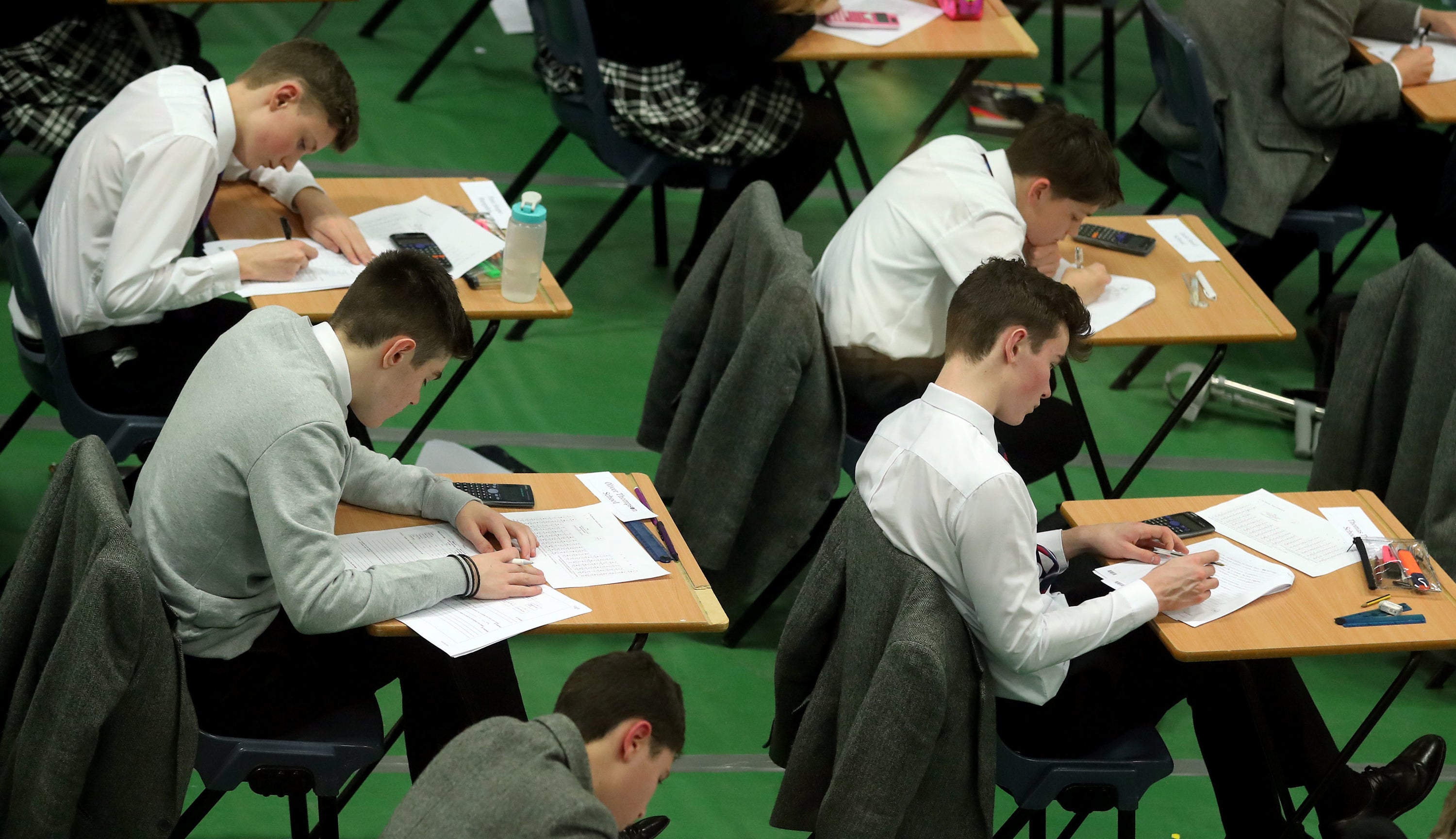
The pass rate for Scotland’s Higher qualifications is down from last year, as thousands of pupils receive their exam results.
More than 100,000 pupils across Scotland began to receive their grades on Tuesday morning, following the first full exam diet since the outbreak of the pandemic.
While the attainment rate for A to C grades is lower than in 2021, it is slightly above pre-pandemic levels from 2019.
Figures from the Scottish Qualifications Authority (SQA) show attainment of A to C grades was 78.9%.
It had been 87.3% in 2021, 89.3% in 2020 and 74.8% in 2019.
There was a similar trend at Advanced Higher level, with those attaining A to C grades at 81.3%, down from 90.2% in 2021 and 93.1% in 2020.

The pass rate was 79.4% in 2019. For National 5 qualifications, the pass rate was 80.8%, down from 85.8% in 2021 and up from 78.2% in 2019.
The percentage of A grades at Higher level was 34.8% this year, a decrease of 12.8 percentage points from last year.
This is the first year exams have returned since the outbreak of the pandemic, with a system based on teacher judgments being used for the previous two years.
A package of support was included this year to reflect ongoing disruption from coronavirus.
Responding to the SQA figures, Education Secretary Shirley Anne-Somerville highlighted the increase from 2019, the last year a full exam diet was held before the pandemic.

She said: “This is one of the strongest-ever sets of results for any exam year, which is particularly impressive given the significant challenges learners have faced as a result of the pandemic.
“Pass rates for National 5s, Highers and Advanced Highers have increased compared with 2019, with A passes also up, and skills-based qualifications are close to the highest-ever figure.
“It is important to note, though, that although 2022 saw a return to exams, it was not a return to normality.
“The approach to exams reflected the disruption to teaching and learning that young people faced and a wide-ranging package of support and modifications was put in place.”

She continued: “I am confident that the approach, which was informed by views from across the education system, as well as learners, has delivered a credible, consistent and fair set of results for our young people.
“Indeed, universities have assured learners that they support the 2022 approach to assessment and industry leaders have spoken publicly about how much they value this year’s qualifications.”
The SQA said changes in assessment methods between different years meant meaningful conclusions in education performance could not be drawn.
Fiona Robertson, the SQA’s chief executive, said: “Many congratulations to the 138,000 learners receiving their certificates today.
“They have demonstrated what they are capable of and should be proud of their achievements.
“Learners can be confident that their qualifications provide a solid foundation for the next stage in their learning, training or employment.
“This is the first time that exams have taken place since 2019, but this year does not mark a return to normal – learners have faced further disruption from Covid-19, on the back of the two previous years of disruption from the pandemic.”
This year, more than two million exam papers have been marked by nearly 6,000 experienced teachers and lecturers.
Up to 138,000 certificates will be issued, including for a range of vocational courses.
A more generous approach to grading has been adopted this year compared to pre-pandemic and there will be a free appeals service.







